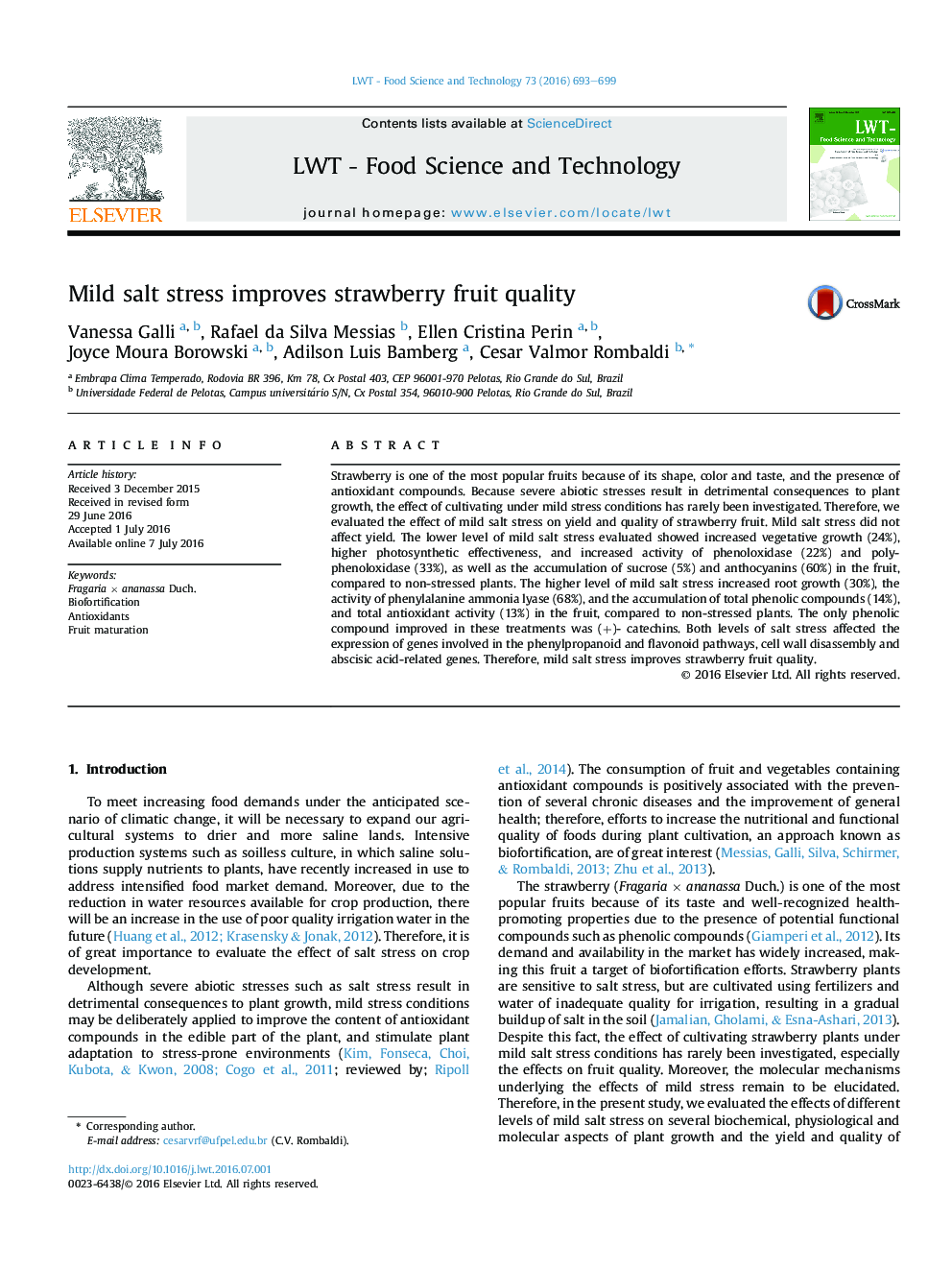| Article ID | Journal | Published Year | Pages | File Type |
|---|---|---|---|---|
| 4563413 | LWT - Food Science and Technology | 2016 | 7 Pages |
•The stress improved the fruit quality without significantly affecting fruit yield.•The application of 40 mmol/L NaCl increased the content of sucrose and anthocyanins.•The application of 80 mmol/L NaCl induced the accumulation of phenolic compounds.•There was an upregulation of genes related to antioxidant compounds and abscisic acid.
Strawberry is one of the most popular fruits because of its shape, color and taste, and the presence of antioxidant compounds. Because severe abiotic stresses result in detrimental consequences to plant growth, the effect of cultivating under mild stress conditions has rarely been investigated. Therefore, we evaluated the effect of mild salt stress on yield and quality of strawberry fruit. Mild salt stress did not affect yield. The lower level of mild salt stress evaluated showed increased vegetative growth (24%), higher photosynthetic effectiveness, and increased activity of phenoloxidase (22%) and polyphenoloxidase (33%), as well as the accumulation of sucrose (5%) and anthocyanins (60%) in the fruit, compared to non-stressed plants. The higher level of mild salt stress increased root growth (30%), the activity of phenylalanine ammonia lyase (68%), and the accumulation of total phenolic compounds (14%), and total antioxidant activity (13%) in the fruit, compared to non-stressed plants. The only phenolic compound improved in these treatments was (+)- catechins. Both levels of salt stress affected the expression of genes involved in the phenylpropanoid and flavonoid pathways, cell wall disassembly and abscisic acid-related genes. Therefore, mild salt stress improves strawberry fruit quality.
